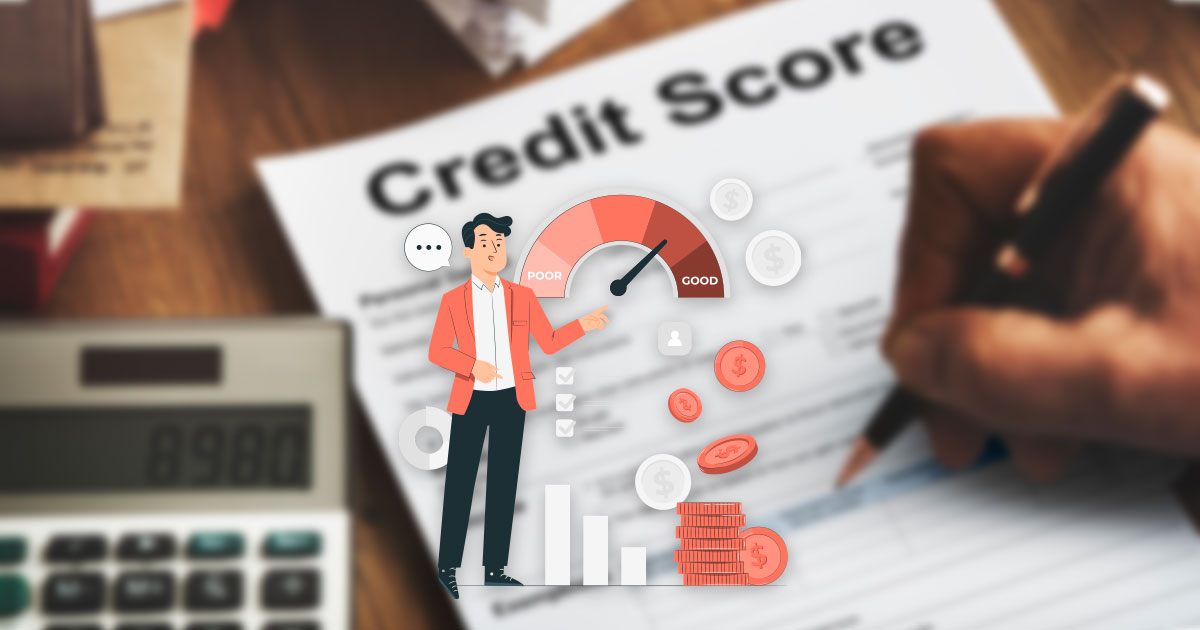Unveiling the Untold Narrative Behind Credit Scores and Their Real Significance
A credit score is a key part of personal finance that often gets overlooked. This three-digit number takes many parts of your financial life—like how you use credit cards, pay back debts, your loan history, and even how you pay utility bills—and turns it into a very important measure that affects many areas of your life. This number, even if not mentioned, can affect important moments.

Your credit score is not just a number; it’s like a key that decides how easy it is to borrow money. This number directly affects the interest rates you get on credit cards and personal loans, whether you’re applying for a home loan or a loan for your dream car. It can also, surprisingly, affect whether you get a job or can rent a new apartment.
Because it affects so many parts of life, it’s important to learn more about it. From where do credit scores originate? Who sets the rules for their computations? Most importantly, do they truly show what is fair?
Explaining the Credit Score
A credit score is basically a number with three digits, which is often between 350 and 850 (sometimes up to 900). The smaller the number, the worse your credit situation is. In general, a score of 580 or lower is regarded as substandard, and a score of 580 to 740 is considered fair or good. Any score over 740 is considered very good, and any score above 800 is considered excellent.
These numbers give you a simple way to see how likely you are to be approved for credit. Basically, lenders look at this number to decide if lending you money is safe or risky. It’s a smart guess about how likely you are to miss debt payments or not meet your financial obligations..
Credit Score versus Credit Report
Your credit report is a vast collection of intricate details, whereas your credit score is only one figure. The credit report contains all the raw data that affects your credit score, like your borrowing history, closed credit cards or loans, home loan details, and other public records.
It also shows any problems, like missed payments or debts sent to collection agencies. Plus, it keeps track of credit checks, which happen often when you apply for jobs, rent, or other financial products.
(FICO stands for Fair Isaac Corporation, the organisation that invented the idea of a credit score.)
Even though the major credit bureaus use slightly different algorithms to calculate your FICO score, the differences between their scores are still rather small. The disparities are unlikely to materially affect your score unless a particular creditor neglects to report to one or more bureaus.
The Science Behind Credit Score Calculations
Even though every credit agency has a different methodology, there are basic weightings you should know. How you pay your bills—whether you pay them on time or late—affects 35% of your final score. If you often pay late, your score will go down. But if you always pay on time, your score will go up a lot.
Another 30% of your score depends on how much debt you have, which includes the total amount you owe on credit cards, loans, and lines of credit. This is also known as credit utilisation. Credit card debt that is constantly maxed out has a negative effect on your score.
The length of your credit history (15%), the variety of credit types you have had (10%), and recent credit activity (10%) are other factors that affect your credit score.
There are several variables that are included within these parameters. However, keeping your credit score in check essentially comes down to staying out of debt and making sure that all of your bills are paid on time.
Unraveling the Origins of Credit Scores
Credit scoring’s historical roots are obscure. Technically speaking, the Fair Isaac Company and its scoring methodology date back to the 1950s, although the refined FICO score first appeared in 1989. The scoring model changed over time, taking into account a number of variables. The most current revisions, released in 2014, included rent payments and recalculated the weight of medical debt.
The basic ideas of creditworthiness were in place before to Fair Isaac’s establishment. Retailers kept individual data dating back to 1912 in order to assess their clients’ creditworthiness. They began exchanging these evaluations gradually, creating the foundation for the early credit rating databases. However, as will be briefly discussed, these ratings frequently suffered from discrimination or subjectivity.
Are Credit Scores Tainted with Bias or Discrimination?
In the past, credit assessments were not limited to monetary criteria. They frequently crossed into private spheres, touching on parts of a person’s intimate, political, or social life. Even with their prudent financial management, one can readily imagine the discrimination that some minorities endured. There are countless stories of people with good financial standing who were wrongfully refused loans because of their race or sexual orientation.
Credit ratings nowadays are said to be cleansed of identifying elements such as gender, race, or sexual orientation. However, detractors never stop drawing attention to innate biases. Bad credit results in higher borrowing costs, which traps certain groups of people in an endless cycle of debt. Notably, credit scores are now included in leasing applications and hiring evaluations, which limits the chances available to people with lower credit scores—a metric over which they have little influence.
Mitigating the Bias Conundrum
Government action has traditionally aimed to introduce fairness into credit scoring in order to address these concerns. The Fair Credit Reporting Act, which was passed in 1970, required credit bureaus to refrain from publishing personally identifiable information in their reports. Additionally, this law improved consumer access to credit information, allowing errors to be corrected.
In addition, the Act mandates that debts be removed from credit reports following a predetermined period of time. For example, this clause is the source of the widely held assumption that a bankruptcy remains on file for seven years.
Unfortunately, there are more factors at play when it comes to getting loans, credit cards, jobs, or housing than your credit score. Experts claim that just 20% to 40% of these selections are usually based on the score. There are other important characteristics as well, such age, wealth, and even ZIP codes.Also, when people apply in person, they might be judged by how they look or sound, even if banks don’t admit it.
The Changing Role of Credit Scores
In the world of lenders and groups that handle credit requests, credit scores are very important. Some companies are starting to give less importance to credit scores. Instead of just saying no because of a low score, they are more understanding, allowing customers to explain their situation. Even with a low rating, they may nevertheless give credit if they approve the software.
Banks have their very own private rating systems. It’s difficult to know why one financial institution accepts an utility at the same time as another rejects it due to the fact these systems aren’t clean. Credit scores will remain a crucial issue of monetary identities no matter the converting environment. However, there appears to be a motion faraway from entire dependence on this metric.
Accessing Your Credit Score and Report
Obtaining your credit score is a simple process. You legally have the right to one free copy from each of the main credit bureaus every year. Additionally, a few bank accounts and credit cards provide extra access to credit reports. To get your copy, just go to AnnualCreditReport.com or give us a call at 1-877-322-8228.
Every bureau has avenues for resolving disputes should they arise. Further credit reports can be necessary if credit is denied. Crucially, unlike popular belief, obtaining your own credit report has no negative impact on your score. While having several creditors review your score quickly could result in a decline, there is no cost associated with closely examining it.
The Crux of the Matter
Credit scores can make people angry. One poor choice or unfortunate event can quickly undo months or years of careful financial restraint. However, one of the most important aspects of your financial identity is your credit score. Your credit score is important whether you want to buy a car, get a credit card, get a student loan, or apply for a mortgage.
Despite justified criticism of credit ratings for historical prejudice, substantial progress has been made. Without any personal information and with some lenders reevaluating their importance, credit ratings are progressively changing. Still, it’s critical to be vigilant about your credit score. Reviewing your report on a regular basis guarantees completeness and correctness, preventing unpleasant shocks when applying for credit in the future.






